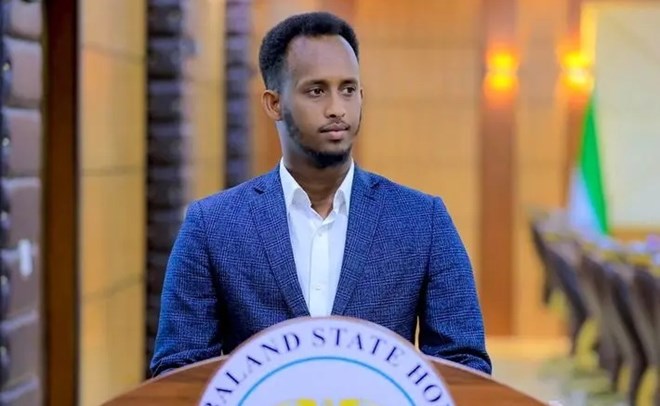
Tuesday November 19, 2024

Kismayo (HOL) — Jubaland’s government has dismissed Somali Prime Minister Hamza Abdi Barre’s accusations that the region failed to honour commitments on unifying electoral processes and transitioning to a one-person, one-vote system. The Prime Minister’s remarks, delivered during a public speech, have reignited tensions between Somalia’s federal government and the southern regional state.
Prime Minister Hamza blasted Jubaland for abandoning agreements reached during the National Consultative Council’s discussions, where it was decided to establish a unified electoral commission and implement a nationwide one-person, one-vote framework. “Jubaland’s leadership played a critical role in drafting these decisions, yet they have refused to implement them,” Hamza said.
Jubaland’s Minister of Information, Abdifatah Mohamed Mukhtar, responded forcefully, rejecting the allegations and defending the region’s constitutional autonomy. “Our constitution allows us to conduct our own elections,” Mukhtar told the BBC. “The Prime Minister’s claims contradict his earlier support for Jubaland’s electoral independence.”
The dispute lays bare the broader tensions between Somalia’s federal government and its regional administrations. While the federal government has prioritized electoral reforms as a cornerstone of Somalia’s democratic progress, Jubaland insists on its constitutional right to self-governance. Minister Mukhtar emphasized that Jubaland boycotted parts of the National Consultative Council talks because the proposals did not align with the region’s interests. “The federal system requires inclusive decision-making. We will not accept any extension of mandates or delays in our elections,” he said.
Jubaland’s electoral commission has announced that the state’s presidential election will take place on November 25. In the lead-up, the selection of parliamentary members and leadership positions is underway in Kismayo. However, the process has been complicated by some candidates declaring their intention to hold parallel elections, independent of the current administration.
This political divergence has deepened the divide between Jubaland and the federal government. Analysts warn that the standoff could undermine Somalia’s efforts to implement a cohesive and democratic electoral system.
Attempts to mediate the conflict have seen little progress. Kenya, a key regional actor, has historically facilitated talks between Somali stakeholders but has yet to resolve the current impasse. Observers note that past disputes between Jubaland and the federal government often ended in favour of Ahmed Madobe, Jubaland’s president, since 2013.
The outcome of this political standoff could set a significant precedent for the balance of power between Somalia’s federal government and its regional states, shaping the country’s democratic future.